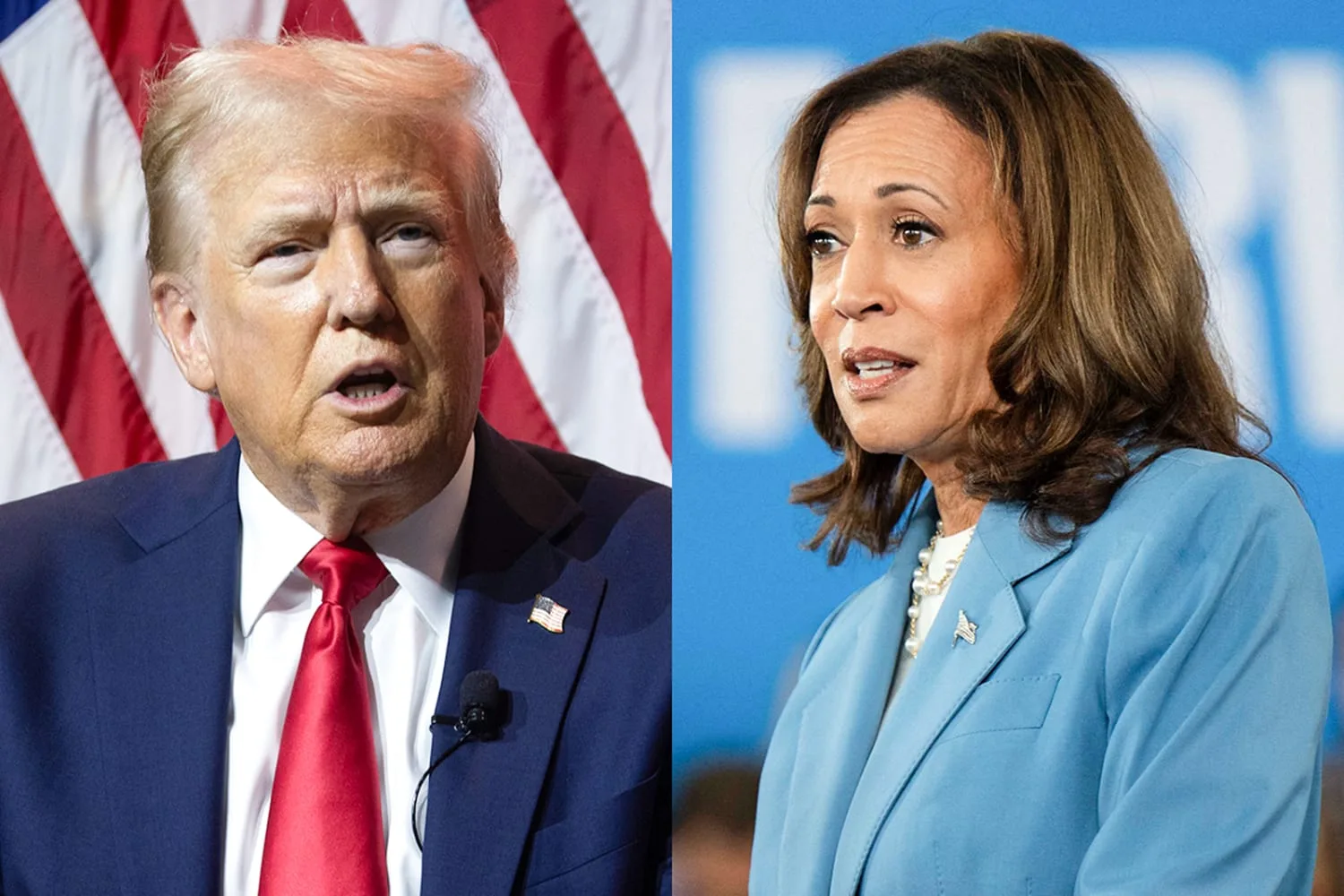A Stark Divide in Transgender Policies Defines Trump and Harris’ Campaigns
As the 2024 presidential election approaches, one of the most contentious issues drawing sharp distinctions between the candidates is their stance on transgender policies. Although former President Donald Trump and Vice President Kamala Harris differ on a range of topics, their opposing positions on transgender policies reflect one of the deepest ideological divides in the race.
“Transgender policies impact more than a small percentage of the population—they touch on core beliefs about identity, children’s welfare, and education,” says political analyst Dr. Jordan Reeves. “For Trump and Harris, the stakes are high as they appeal to voters with very different values on this issue.”
Join our WhatsApp ChannelTrump’s Position on Transgender Policies
Trump’s opposition to many transgender policies has remained consistent and vocal throughout his campaign. He has criticized what he terms the “transgender agenda” being promoted in schools, often highlighting incidents of “secret transitioning” practices, where teachers and counselors assist minors with gender changes without parental consent. He has stated that if re-elected, he would push for legislation to prevent such practices and ban gender transitions for minors nationwide.
Speaking at a recent rally, Trump reiterated, “Men should stay out of women’s sports, and children should not be subjected to harmful treatments without their parents knowing. I’ll put an end to this.” This view has resonated strongly with his conservative base, with Trump supporters largely favoring traditional definitions of gender and pushing back against transgender policies that affect children and schools.
Trump has also vowed to strip federal funding from schools that support gender transitions for minors. He recently stated, “Federal funding should not be used to push transgender policies that confuse children and sideline parents.” This stance not only resonates with his supporters but has sparked heated debate among moderates who may be on the fence about his more sweeping approach.
Harris’s Advocacy for Transgender Rights
On the other hand, Vice President Harris has stood as a staunch advocate for the transgender community, supporting a range of policies that promote gender inclusivity. She has framed transgender policies as essential civil rights, expressing her belief that access to gender-affirming healthcare is a matter of justice.
Harris’s past actions underscore her stance. In a 2019 interview with the National Center for Transgender Equality Action Fund, she described gender-affirming healthcare as “medically necessary” and vowed to uphold it as part of her campaign. Harris has also openly supported the use of federal funds to cover gender-transition procedures for incarcerated individuals, a policy that has drawn both praise from progressive groups and criticism from opponents.
“Our goal is simple: equality and respect for all,” Harris said in a recent interview. “Transgender policies that respect individuals’ choices are about human dignity, and I believe Americans understand that. It’s about moving forward, not back.”
Title IX and Transgender Policies in Education
One of the most polarizing aspects of transgender policies in this election centers around Title IX, a law that initially focused on preventing gender-based discrimination in schools. In April, the Biden-Harris administration expanded Title IX protections to include gender identity, sparking both advocacy and litigation nationwide.
READ ALSO: Cambridge Dictionary Updates Definition of ‘woman’, Includes Transgender
Under this new interpretation, schools are required to allow transgender students to participate in sports and use facilities that align with their gender identity. This policy has stirred debate across the country. Multiple states, such as Texas and Kentucky, have filed lawsuits opposing the federal government’s redefinition of sex within Title IX, arguing that it overrides local policies and conflicts with parental rights.
Jessica Romero, a mother from Texas, voiced her concerns: “I want to support every student, but my daughter’s privacy and safety matter, too. These new transgender policies have taken away her space.”
Meanwhile, supporters argue that Title IX’s expansion is essential for inclusion. Harris defended the policy, stating, “Every student deserves the chance to feel safe and accepted. Our transgender policies aren’t just about rules; they’re about lives and futures.”
Transgender Policies on Medical Care for Minors
Medical care for transgender minors has become a particularly contentious topic. Trump has called for a federal ban on gender-transition treatments for minors, which he describes as “child mutilation.” His proposed policy would prevent minors from accessing surgeries and hormone therapies that assist with gender transitions until they reach adulthood.
This view has been popular among conservative voters who worry about the long-term effects of such treatments. Arkansas Senator Robin Lundstrum, a Trump supporter, stated, “Minors simply cannot understand the irreversible consequences of these medical procedures. Transgender policies that push these treatments on kids are, in my view, deeply irresponsible.”
Harris, however, has emphasized that restricting gender-affirming care goes against medical advice from prominent health organizations. “Gender-affirming care saves lives,” she said at a campaign event. “Our transgender policies will always respect families’ choices and the health needs of children.”
State Battles and the National Implications
The debate over transgender policies extends beyond the presidential race, as state governments also pass legislation either restricting or protecting transgender rights. Fifteen states, including California and Colorado, have enacted “shield laws” to protect minors seeking transition treatments, making it harder for other states to enforce their bans on such procedures across state lines.
Conversely, almost half of U.S. states have enacted laws that restrict gender-transition procedures for minors, viewing them as protective measures. Texas Attorney General Ken Paxton recently filed lawsuits against medical professionals providing hormone treatments to minors, a move in line with the state’s recent Senate Bill 14, which bans such procedures for minors.
As legal battles unfold across the country, both Harris and Trump are watching closely, with Trump pledging to “protect America’s children from radical transgender policies” if elected.
The Future of Transgender Policies in America
With election day on November 5 approaching, both candidates remain committed to their positions on transgender policies, each hoping to sway voters who feel strongly on the issue. While economic concerns dominate much of the campaign discourse, transgender policies have become a flashpoint representing deeper ideological divides in America.
“This election goes beyond policy—it’s a battle of values and visions for our children’s futures,” Dr. Reeves commented. “Transgender policies are not just policies; they reflect America’s cultural and political crossroads.”
For Trump and Harris, transgender policies are a powerful symbol of their respective campaigns, each offering voters a choice between very different futures.
Emmanuel Ochayi is a journalist. He is a graduate of the University of Lagos, School of first choice and the nations pride. Emmanuel is keen on exploring writing angles in different areas, including Business, climate change, politics, Education, and others.
- Emmanuel Ochayihttps://www.primebusiness.africa/author/ochayi/
- Emmanuel Ochayihttps://www.primebusiness.africa/author/ochayi/
- Emmanuel Ochayihttps://www.primebusiness.africa/author/ochayi/
- Emmanuel Ochayihttps://www.primebusiness.africa/author/ochayi/



















Follow Us